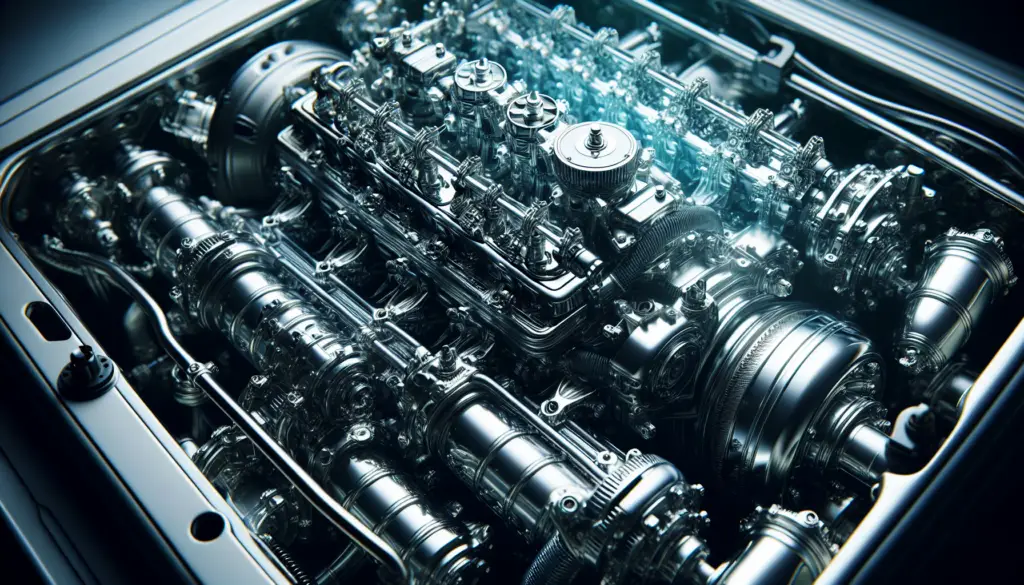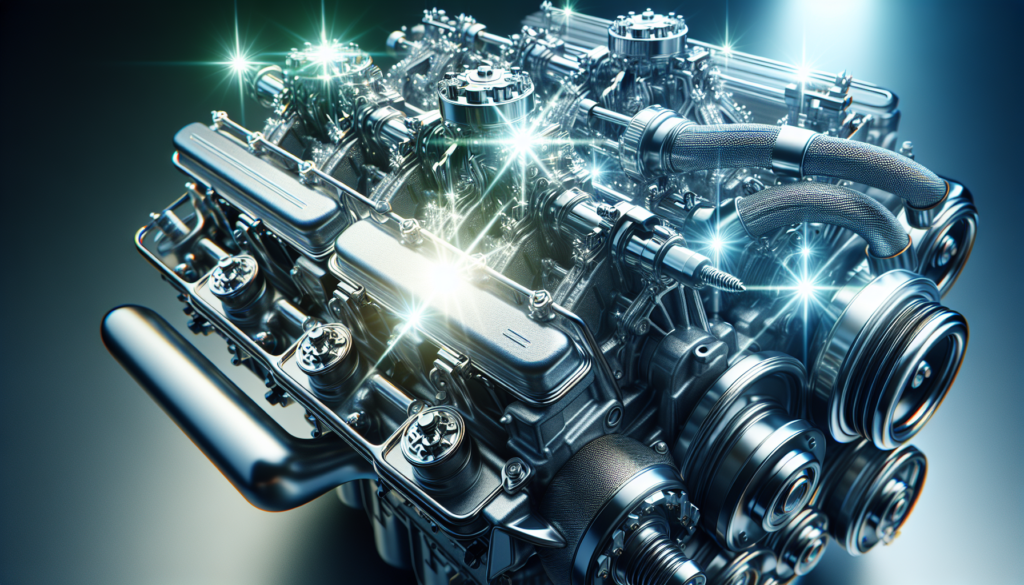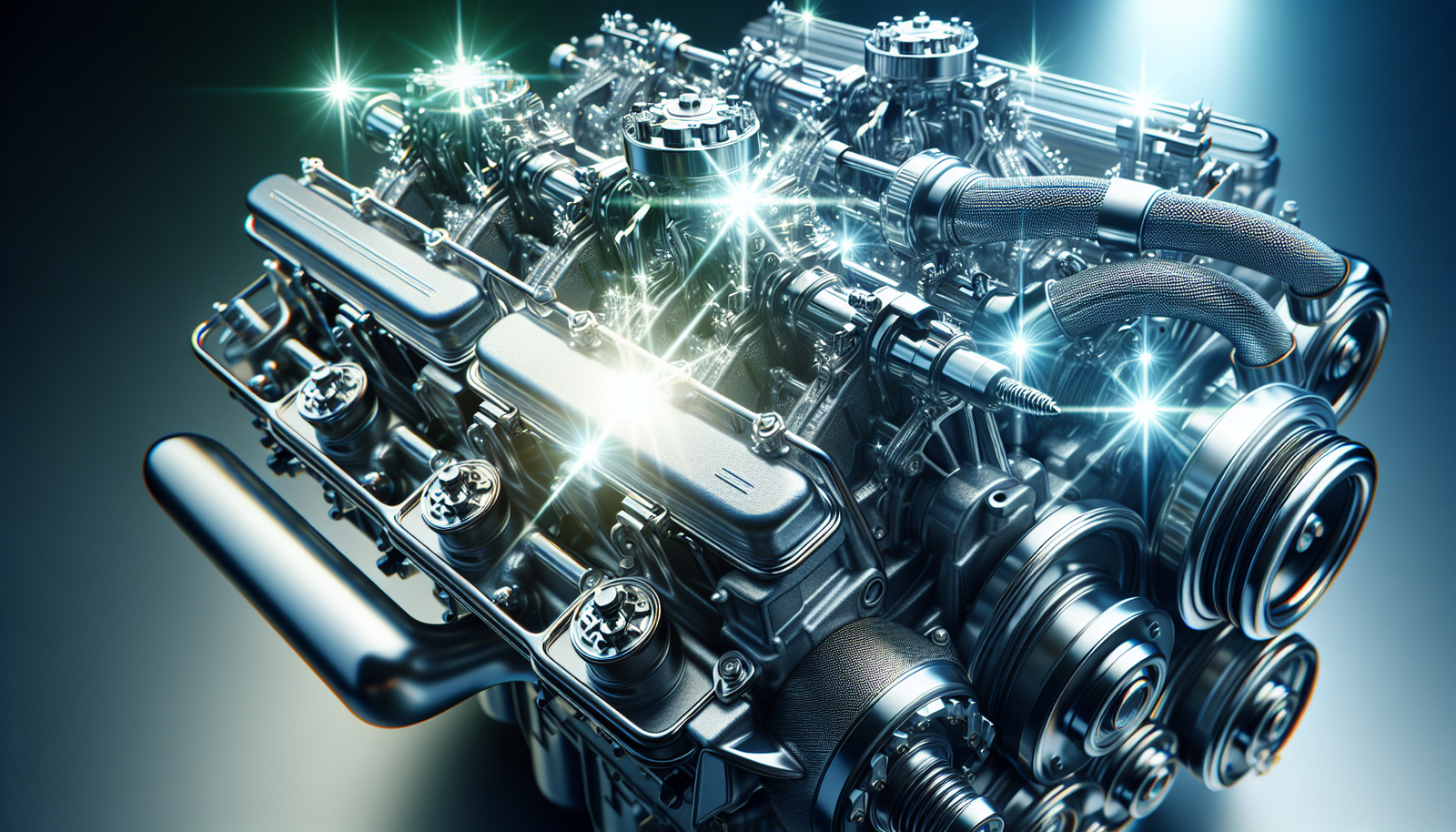You are about to embark on a voyage into the vast sea of boat engine warranties – a world as complex as the engines they cover. This often confusing and occasionally daunting world can leave you adrift without the right knowledge. This guide aims to be your compass, pointing you in the right direction and helping you understand the ins and outs, the pros and cons, and the must-knows when it comes to boat engine warranties. Get ready to sail smoothly through a sea of information, coming out the other side more informed and equipped to make the best decision for your boating needs.

Understanding The Basics Of Boat Engine Warranties
When you’re investing in a boat, it’s crucial to understand all the components, including the boat engine warranty. This warranty is essentially a promise from the manufacturer or dealer to repair or replace defective parts within a specified time.
Just like any other kind of warranty, a boat engine warranty is a type of insurance that can save you a significant amount of money and stress.
What is a Boat Engine Warranty
A boat engine warranty is a contractual agreement between you and the manufacturer or dealer. If the boat’s engine or its components fail or are defective, the entity responsible for the warranty will repair or replace them according to the terms of the warranty.
The Importance of a Boat Engine Warranty
The significance of a boat engine warranty cannot be overstated. They not only give you peace of mind but also protect your investment. Imagine being out on the water when your engine breaks down – a comprehensive warranty can save you from hefty repair bills in such situations.
Types of Boat Engine Warranties
Just like cars, there are different types of warranties for boat engines.
Manufacturer’s Warranty
As the name implies, a manufacturer’s warranty is provided by the manufacturer of the boat or the engine. This warranty usually covers any defects due to material or workmanship.
Extended Warranty
An extended warranty, as the name implicates, expands on the manufacturer’s warranty. This can cover a longer period or may cover more components than the original warranty.
Dealer’s Warranty
A dealer’s warranty comes from the dealership where you bought the boat. This warranty typically covers the same components as the manufacturer’s warranty but can differ in their terms and conditions.
Third-Party Warranty
Lastly, a third-party warranty is offered by an entity that is neither the manufacturer nor the dealer. This can be another company specializing in boat warranties. The extent of coverage often varies greatly, so be sure to read through what it covers and excludes carefully.
Components Covered Under Boat Engine Warranties
Boat engine warranties generally cover the key parts of your boat’s engine. Here are a few:
Engine Block
The engine block, or the powerhouse of your boat, is usually covered in the warranty. This component houses the cylinders and other parts of an internal combustion engine.
Propulsion System
The propulsion system, the means that makes your boat move through water, is typically included in the engine warranty.
Turbines
Turbochargers or turbines, that gives your boat’s engine that extra power boost, are usually included in the warranty.
Fuel System
The fuel system delivers the fuel from the tank to the engine. Its coverage in warranty is crucial due to its importance in the boat’s function.
Electrical Components
Most warranties will cover the electrical components of your boat’s engine. This can include the boat’s alternator, starter, wiring, and other electrical parts.
What Is Not Covered By Boat Engine Warranties
Unfortunately, not all parts or situations are covered by a boat engine warranty. Here’s usually what’s excluded:
Normal Wear and Tear
Just like car warranties, boat engine warranties typically do not cover normal wear and tear. This means parts that are expected to wear down over time, like belts and hoses, usually aren’t covered.
Poor Maintenance
Your warranty can become void if you fail to manage regular and recommended maintenance on your boat’s engine, such as oil changes.
Improper usage
If the boat’s engine is not used as intended and this leads to damage, the warranty will likely not cover the repairs. Make sure you understand the recommended usage to avoid any surprises.
Unauthorized Modifications
If any alterations are made to the boat’s engine without approval, the warranty will almost certainly fail to cover any damages. Always consult your warranty before making modifications.
Environmental Damage
Damage due to environmental factors, such as saltwater corrosion or storms, is usually not covered by your boat engine warranty. This is where boat insurance comes in handy.

How to Claim a Boat Engine Warranty
If something goes wrong with your boat’s engine and it needs repairs, you’ll need to make a claim on your warranty.
Step-by-Step Process
The process usually involves contacting your provider, describing the issue, and taking your boat to an authorized center for repairs.
Essential Documents for Claim
To file a claim, you will need your warranty details, proof of ownership, and proof that essential maintenance has been carried out. It’s also beneficial to include a detailed description of the problem.
Dealing with Denials or Delays
In case of claim denial or delay-be patient, persistent and take escalated actions if necessary. This can include contacting the Better Business Bureau or a consumer protection agency.
The Role of Boat Insurance In Engine Warranties
Boat insurance can work alongside your engine warranty to provide comprehensive coverage.
Comparing Boat Insurance and Engine Warranties
While an engine warranty covers defects and breakdowns, boat insurance can cover damage from accidents, natural disasters, and more.
How Boat Insurance Can Supplement Your Warranty
This means while your warranty takes care of engine failure, your boat insurance can cover the costs if you run aground or hit another boat, for example.
Understanding Deductibles and Premiums
Just like with car insurance, you’ll pay a monthly premium for boat insurance. In the event of a claim, you’ll need to pay a deductible.
Understanding The Fine Print in Boat Engine Warranties
Boat engine warranties may seem straightforward, but they can have complexities. Here’s what to look out for:
Time Limits
Most warranties have expiration dates. Be sure to understand how long your warranty will last.
Territorial Limits
Some warranties may only apply in certain geographic areas. Make sure you know if your warranty has such limits.
Registration and Maintenance Requirements
Some warranties may require you to register the boat within a certain time frame or perform certain maintenance tasks to keep the warranty valid.
Transferability of The Warranty
If you decide to sell your boat, some warranties are transferable to the new owner. This can add value to your boat when you’re ready to sell.
Common Disputes and Laws Related to Boat Engine Warranties
Unfortunately, sometimes disputes can arise out of warranty claims.
Federal and State Warranty Laws
Both federal and state laws in the US protect consumers. These laws state what obligations the manufacturers and dealers have to their customers with respect to warranties.
Dispute Resolution Mechanisms
If you and your provider can’t agree on a warranty claim, you may have to use a dispute resolution mechanism like going to court or mediation.
Role of The Better Business Bureau and State Consumer Protection Agencies
Organizations like the Better Business Bureau and state consumer protection agencies can help consumers resolve disputes related to warranty claims.
Tips to Maximize the Benefits of Your Boat Engine Warranty
Here are a few things you can do to ensure that your warranty serves you well:
Regular Maintenance
Regular maintenance not only keeps your boat running smoothly but also helps in ensuring your warranty remains valid.
Keeping a Detailed Service History
Having a detailed record of your boat’s service history can help you prove that the boat has been properly maintained.
Adherence to Recommended Usage
Following the manufacturer’s instructions on how to use the boat can help you avoid invalidating your warranty.
Prompt Reporting of Problems
If you notice any issues with your boat’s engine, it’s best to report these immediately. Delayed reporting can possibly void your warranty.
Conclusion: Surviving The High Seas of Boat Engine Warranties
Purchasing a boat is a big investment. Protecting that investment with a robust warranty is a smart move.
Choosing the Right Warranty
Selecting the right warranty requires understanding what’s covered, what’s not, and how long the warranty period lasts.
Importance of Being a Savvy Consumer
Don’t be afraid to ask questions, compare offerings, review contracts and consider alternatives before making a decision.
Long-Term Implications of Warranty Choices
Remember, the warranty you pick could have a long-term impact on your boat’s value and your peace of mind, so choose wisely!
Steering through the waters of boat engine warranties can indeed be overwhelming, but with the right tools and understanding, you can navigate it with ease and secure your investment.


[…] Navigating the world of marine engines can be quite a complex endeavor, especially when it comes to distinguishing between 2-stroke and 4-stroke boat engines. The specifics of their designs, functionalities, pros, and cons can have a significant impact on your boating experience. This article will offer you essential insights into these distinct engine types, helping you make better-informed decisions about your boating needs. […]
[…] the warranty lingo, it’s important to differentiate between manufacturer warranties and dealer warranties. Each has unique coverage, limitations, and […]